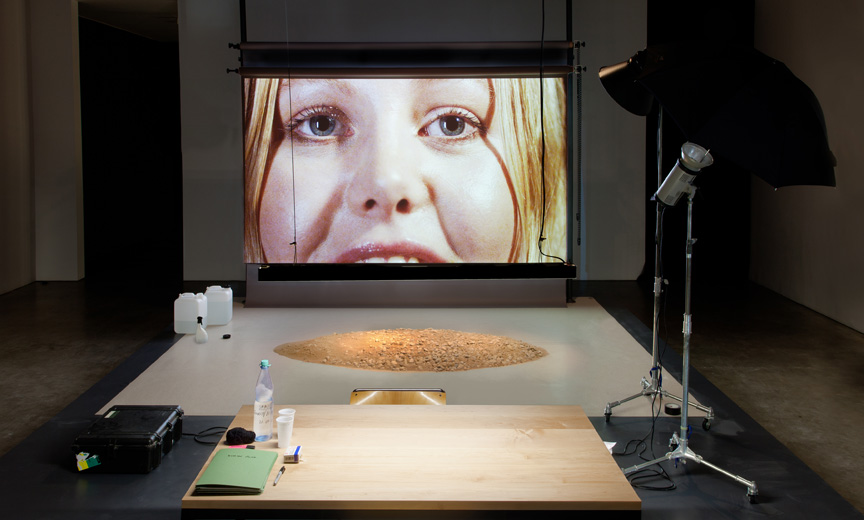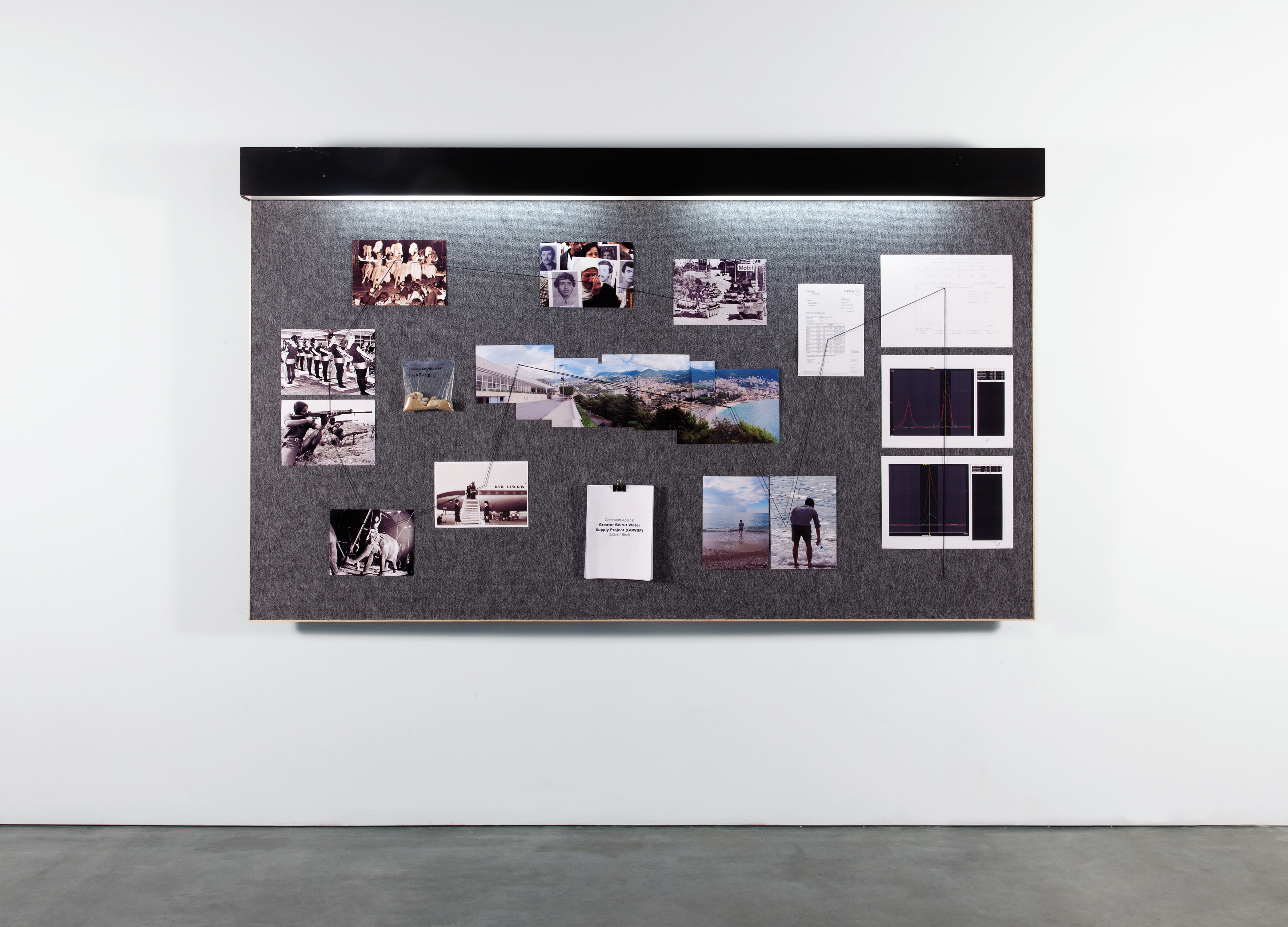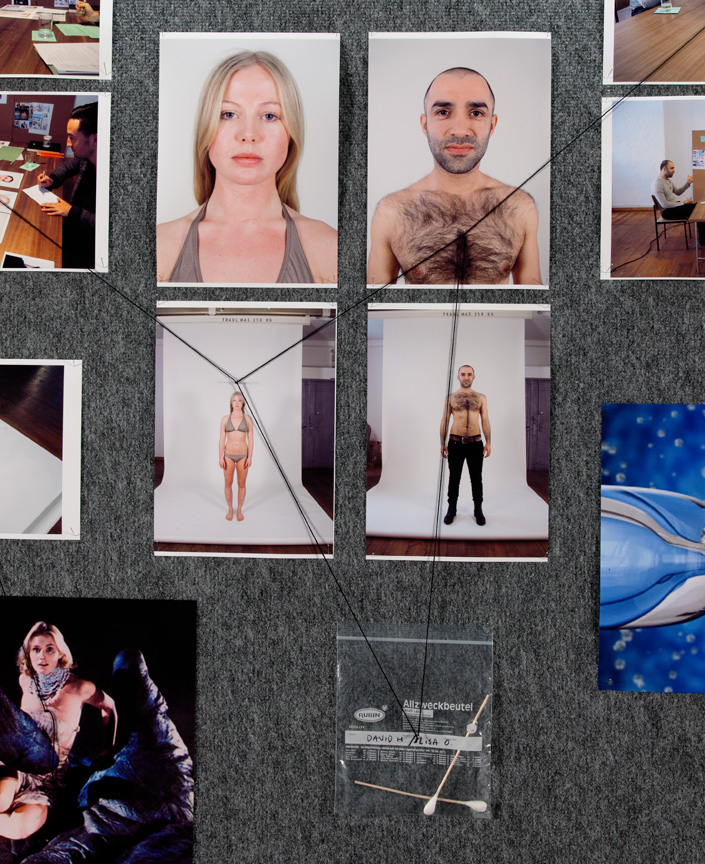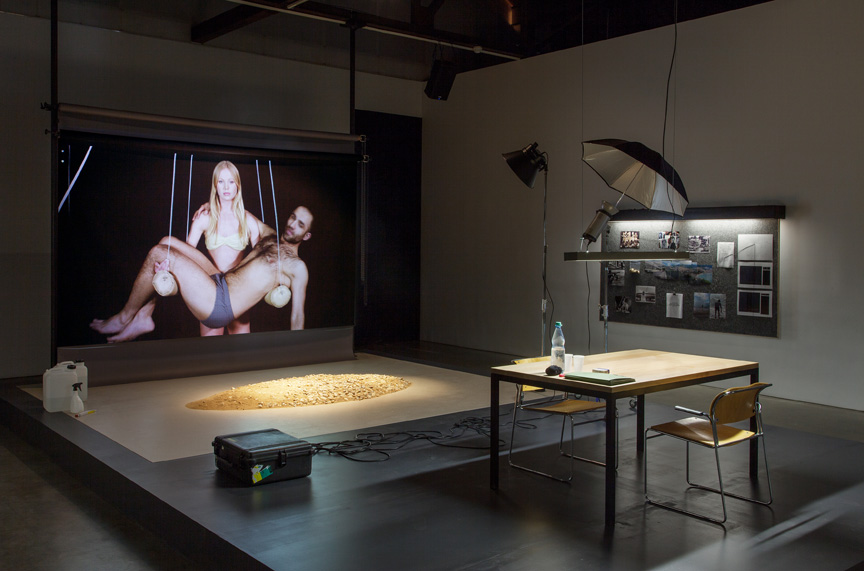Shows
Simon Fujiwara’s “Studio Pietà (King Kong Komplex)”


An absent family photograph is at the heart of Simon Fujiwara’s multi-media exhibition “Studio Pietà (King Kong Komplex).” In the photo in question, a Lebanese man has his arms clasped tightly around the artist’s British cabaret-dancer mother as he lifts her into the air on a beach in 1960s Beirut. By documenting his attempts to re-stage and re-photograph this image, Fujiwara teases out larger sociopolitical issues in a willfully superficial manner, providing a humorous take on the limitations imposed by the involvement of the artist.
An installation of the artist’s Berlin studio dominates most of Andrea Rosen’s main gallery space. Bulletin boards, pinned with paperwork—actors’ headshots, close-ups of sculptural figures and so on—reveal the painstaking process behind Fujiwara’s attempt to reassemble the photo’s contents. A network of string connects the documents, as if trying to outline some shadowy logic, while two chairs and a table, sitting in the room’s center and lit from above, lend the scene an interrogation-cell-like intensity. Adjacent, the site of the restaging—a pile of rocky sand and stage lighting equipment in front of a green screen— provides the setting for a video detailing the artist’s process.


It is evident that Fujiwara is less interested in the end product than the attempt itself, an emphasis made clear not only by the choice to omit the original photograph from the exhibition, but by the convoluted manner in which the event itself is re-staged. In the video, the artist’s thoughts are made explicit. After discussing the many requirements he has for the actress playing his mother, he then proceeds to cast the role of the Lebanese man—“Arab-looking” being the sole qualification. Suddenly, music begins to blare and a video montage depicting Arab men—stereotypically bearded, turbaned, all with angry expressions and wielding AK-47s—begins to play.
Eventually a man is selected. But, frustrated at being typecast, the actor suggests altering the script so that the the blonde white woman holds the Arab man instead of the other way around. It was “important to represent them as they saw themselves,” Fujiwara says at one point, which is of course ludicrous. But, the resulting visual disparity is amusing: the two grin as a hanging contraption is used to assist the woman to manage the man’s weight.
Through his development of a theory on what he calls a “King Kong complex”—defined as a certain sexually charged fear of darker, hairier “ethnic” men which he addresses in the video component of the work— Fujiwara springs into the larger issue of racial prejudice at play in his attempts at re-staging. While he delineates the tenets in his narration, the imagery in the video provides a sort of erotic tangent to the words—a comment about his mother’s dance troupe being a sort of eugenics experiment is supplemented by lush, almost parodic shots of a pair of hands putting on surgical gloves and swabbing the inside of someone’s mouth.

It is evident that Fujiwara seeks to complicate the process of re-enactment as a means of confronting social and political legacies (one could look toward Jeremy Deller’s The Battle of Orgreave from 2001 for a larger and less personal example) but his efforts to tease out issues of accuracy and faithfulness through his engagement with his and his family’s pasts seem rather fleeting. Ultimately, rather than acknowledging these questions, he tends to circle back toward his own present. “Studio Pietà (King Kong Komplex)” works best as a knowing failure to break free from navel-gazing, a light-hearted mockery of his attempts to make good on political issues through his engagement in a pseudo-anthropological self-interrogation.
Studio Pietà (King Kong Komplex) is on view at Andrea Rosen Gallery, New York from June 28 – August 9, 2013.







